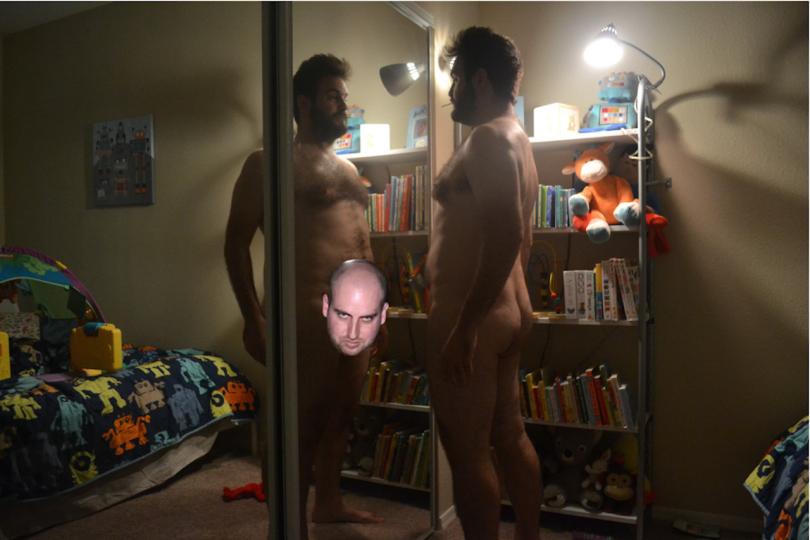Is it censorship?

Editor's Note: In addition to the annual conversation about what is good, bad, and exciting-even-when-it's bad at the Minnesota Fringe Festival, there has been additional under-the-radar conversation about a lawsuit filed against the Fringe Festival by an artist who was barred from participating this year. In the essay below, first posted on Facebook and reprinted with permission, local artist Bill Stiteler discusses the nature of censorship and argues that this is an issue all artists want to consider, and re-consider. As always, we welcome all perspectives.
We're living in an age where a lot of really awful people are coopting the ideas of censorship and intolerance when people simply disagree with them. It's especially noxious around the non-issues of Gamergate and Men's Rights, where the cries of "OMG I'M BEING CENSORED!!!" have really caused the concepts to be devalued.
Now, because of this, there has been a reaction leading to the idea that nothing is censorship--except for a government agency literally throwing you in jail for a political speech. Yes, I've seen the XKCD "showing you the door" comic, and I don't like it because it goes too far the other way. There is a key difference between dealing with the consequences of the ideas you express and not being allowed to express those ideas.
Sean Neely's case in this year's Minnesota Fringe Festival is the latter. Here's why what happened to Neely was censorship, and why you should be upset about it. I apologize for the length, but I have a lot of stuff to get out.
It would be one thing if the festival had restrictions on what could be produced. If I entered a festival that was only for the production of original works with, say, Hamlet, or I entered a festival that only prodiced works by women or minorities, they'd be justified in rejecting me because they've clearly stated the parameters. I once had a theater turn me down because the show I pitched didn't meet their artistic standards.
The central tenet of a Fringe Festival is that it's unjuried. The Fringe was started by artists who couldn't get into a play festival, so performed their works in knockabout spaces during the other festival and eventually grew bigger than that festival. It is a festival, and later a string of festivals, dedicated to free expression.
This year, that was violated.
This year Sean Neely won a slot in the lottery. This slot was revoked, as far as I have been able to discern, based on the controversial nature of his show last year, and the description of what he was going to do this year.
This is censorship. He is being prevented from expressing his ideas to an audience of adults, in violation of the rules of the organization.
There are, of course, reasons why a show can be removed. If it's slanderous, if you don't have the legal right to perform it (the Coens crushed my dreams of doing Two Gentlemen of Lebowski*), and the safety of the audience.
The last one is where things get murky for some. I view the safety of the audience as referring to the physical safety. The clear and present danger of yelling "Fire" which could cause a stampede, or using real guns on stage. Open flames. It does not refer, in my opinion, to the psychic safety of the audience to be exposed to ideas they might hate. The Fringe publishes (voluntarily submitted) guidelines to let the audience know what to avoid (or seek out).
The other "rule" that's been brought up—which I hadn't heard of before this year—was about involving people in a show against their will. Again, this refers to the audience in the theater, and their physical safety. I've seen performers insist that the audience answer their questions before moving on with their monologue, gone to a show where I had to do yoga with a group, and had actors sit next to me and talk in character.
So what we're really talking about is the content of Sean Neely's work. He is a white man, who did a show about rape last year, from the perspective of a rapist. And this year he proposed a show about a child molester.
And that's what upset people—not what he did, not that he didn't follow the rules of the festival, but his choice of topics. Not the quality of his work (which I find amazing, but which is completely irrelevant to the argument), but his deliberately controversial ideas. The idea of someone doing this material made some people so angry that, in a frankly shocking move to me, they're supporting the censorship of another artist.
I've seen several people attacking Neely with "Oooh, he thinks he's so *edgy!*" But here's the thing—it is. It is edgy. His work is deliberately pushing the audience towards uncomfortable ideas. I don't think he believes those ideas, any more than I think he's actually a drug dealer, a white supremacist, a rapist, or a child molester. But because we've got so much shitty culture that throws in violence and "grit" for shock value, we've lost sight of the fact that you can be transgressive and also have an artistic point/vision.
We used to call this stuff avant-garde. You might even say he's on the fringe of theater.
Here's why you, as an artist or lover of the arts, need to stick up for Sean Neely—a lot of the things we take for granted would, at one point, have been unthinkable to stage. There were shows about abortion this year that got zero star reviews from people who had not seen them. Shows that push "the gay agenda"—which is to say, how completely normal their lives are—were once taboo.
I'm not friends with Sean Neely. I've never spoken to him, not even after a performance to say I liked his work (and I like it a lot), but the quality of his work is, as I say, irrelevant. I've been involved with the Fringe for a long time, as a volunteer, an artist, and an audience member. One of the things I hear year after year is "Boy, this could only happen at the Fringe!" It is my hope that if you've have come out in favor of this act of censorship, you will rethink your position, and even if you think you would hate Neely's work, will recognize that he has a right to perform it, and that revoking his slot was wrong for the Fringe to do.
I thank you for your time.
*And let's talk about the issues of copyright infringement at a later date.




